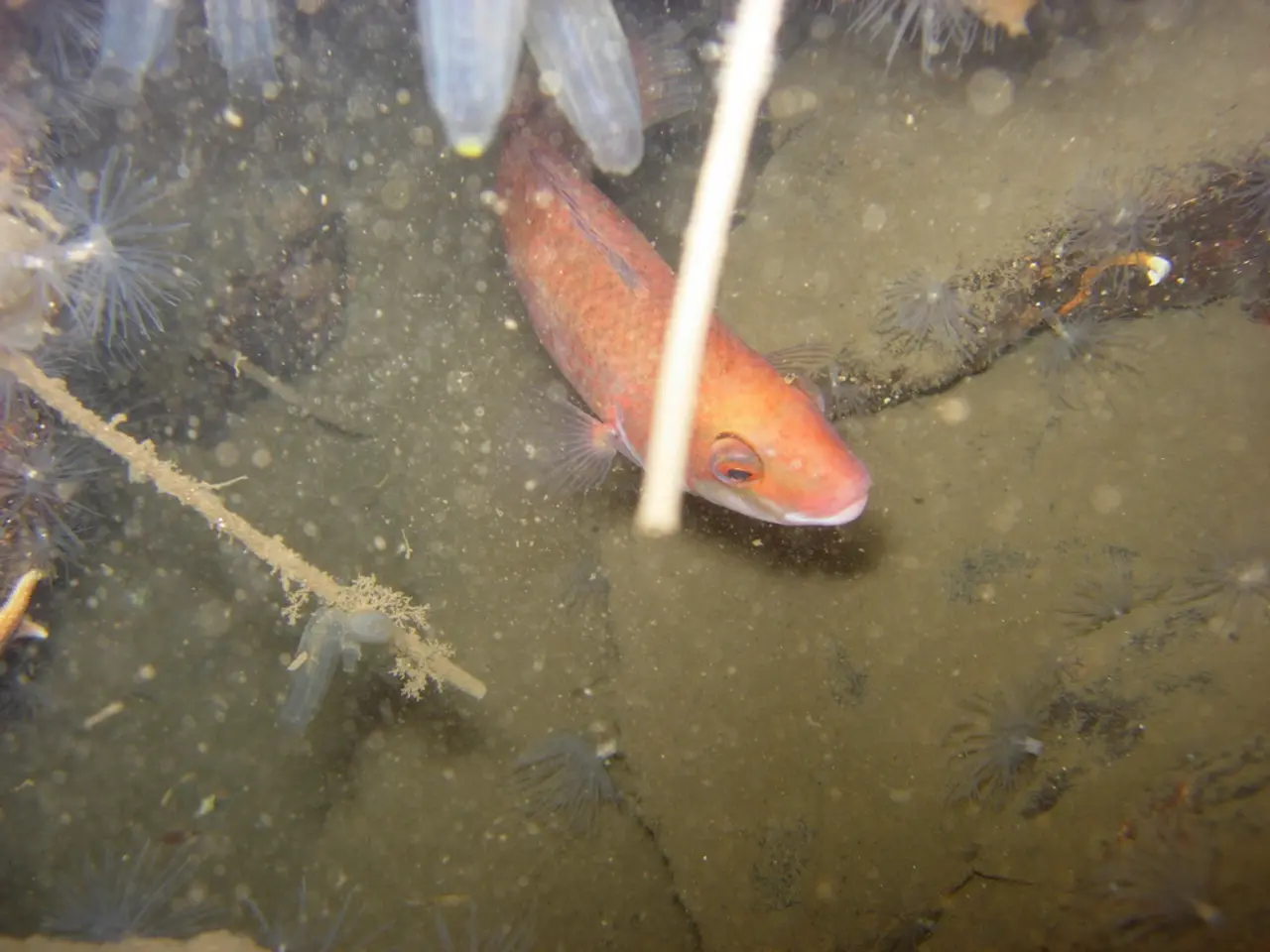Sustainable and Profitable Weed Management: Carp Farming as an Earth-Friendly Approach for Weed Eradication and Financial Growth
In the world of Indian aquaculture, grass carp have emerged as a vital player, particularly in composite fish farming. These fish are primarily used as biological weed control agents, reducing the need for manual or chemical weed management [1][5].
In composite fish farming, multiple carp species are cultured together to exploit various ecological niches and maximize production. Grass carp, being herbivores, consume large amounts of aquatic weeds and vegetation, improving pond water quality and creating favourable conditions for other carp species [1][5].
The grass carp's grazing habits contribute to the overall productivity of the fish farm by removing excess vegetation that would otherwise compete with the culture fish for resources. This action fosters a balanced aquatic ecosystem, enhancing the growth performance of commercially important carp species like rohu, catla, and common carp [1][5].
Grass carp farming is supported by various government departments, Krishi Vigyan Kendras, and the National Fisheries Development Board (NFDB). Farmers can attend training programs to learn about composite culture, disease management, and improved feeding methods [2].
Subsidies are available under the PM Matsya Sampada Yojana and other schemes for fish seed, pond renovation, and feed procurement. Grass carp thrives in warm water with temperatures between 20 to 30 degrees Celsius and can survive in water bodies ranging from rivers to ponds and reservoirs [3].
In well-managed ponds, grass carp can help maintain a balanced ecosystem by reducing weeds and providing space for other fish species to thrive. Clear pond water with abundant aquatic plants is ideal for grass carp, but if vegetation is scarce, farmers can feed the fish with green fodder like Napier grass, spinach, banana leaves, or vegetable waste [4].
Grass carp farming is an eco-friendly, low-maintenance, and profitable solution for Indian farmers with small ponds or larger water bodies. With increasing awareness and adoption of scientific fish farming practices, grass carp is emerging as a favourite among rural fish growers aiming for higher productivity and income [6].
In Eastern India and Northeastern states, grass carp has a strong market demand, with prices ranging from Rs. 100 to Rs. 160 per kilogram depending on size and location [7]. The first published date for this article is 06 Aug 2025, 11:27 IST.
References:
- National Fisheries Development Board (NFDB)
- Indian Council of Agricultural Research (ICAR)
- Indian Council of Agricultural Research - National Bureau of Fish Genetic Resources (ICAR-NBFGR)
- Department of Fisheries, Government of India
- Fish Farming in India: Current Scenario and Future Prospects
- Grass Carp Farming: A Profitable Venture for Small and Medium Farmers in India
- Market Price of Grass Carp in India
In a bid to diversify their livelihoods, some Indian farmers are venturing into home-and-garden projects that include grass carp farming. This eco-friendly, low-maintenance farming method can create a harmonious home-and-garden ecosystem by improving the water quality in small ponds, thereby fostering a balanced aquatic lifestyle.




